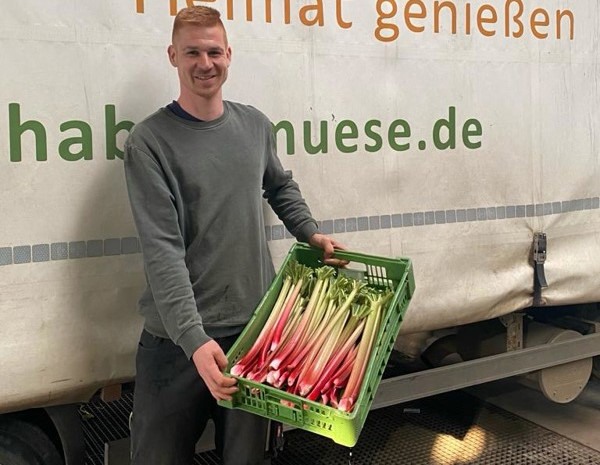In August, heavy rain and hail led to increased fungal and bacterial infestation in many production areas, including Stefan Seischab's vegetable cultivation. "Bacteriosis caused parsley to suffer considerable losses. However, this seemed to have been a problem throughout Germany, which is why prices were so high given the short supply."

15 to 20 per cent more chives sold
In contrast, he was able to record good quality and high yields with his chives. "The crop did suffer from the heatwaves at times. However, we sold more chives this year than ever before, which in turn was due to the otherwise optimal weather conditions," says the farmer. He was able to sell an estimated 15 to 20 per cent more chives this year.
"The only regrettable thing is that prices have not been higher overall, despite our additional costs. Depending on the customer, we were occasionally able to charge higher prices or at least the same prices as the previous year. After all, the prices were not lower than in 2022." His customers include large food retail chains, the catering industry and intermediaries. "We have a large customer in the Netherlands to whom we sell the chives in bulk, which the customer then bundles and sells on." He generates 30 per cent of his turnover through his cooperation with Franken-Gemüse eG.
He grows his produce on 28 hectares in the open and 3,000 square metres under glass. "We have seven permanent employees who work for us all year round. At peak times, we have another 23 seasonal workers from Romania. In winter, carrots, celery and leeks dominate the scene. We cultivated lamb's lettuce for a while, but we stopped this year because it just wasn't profitable anymore." Seischab has also noticed that the market for greenhouse tomatoes and cucumbers is largely saturated. "In recent years, some farms have also started to cultivate hydroponic lettuce. This market segment also seems to be largely covered."
Low prices despite high additional costs
He can hear a tense mood among his colleagues in the "Knoblauchsland". "The issue of staff shortages is generally leading to challenges, but employee morale also often leaves a lot to be desired. This is one of the reasons why two colleagues will only concentrate on production and leave the harvesting to other companies. Added to this is the very tight price situation. We have to bear all the additional costs, but we can hardly pass them on."
Since this year, his range has also included pak choi, which is selling well. "But I reckon it's more of a trend product. The demand for radishes is no longer as high as it used to be, but they still sell well. Our best-selling products include bunching onions and herbs, i.e. chives, dill, parsley and cauliflower."
For more information:
Stefan Seischab![]() Gemüsebau Seischab
Gemüsebau Seischab
Am Knappsteig 41
90427 Nürnberg
Telefon: 0911 936910
E-Mail: [email protected]
Webseite: www.seischabgemuese.de
Instagram: @gemuesebau_seischab
